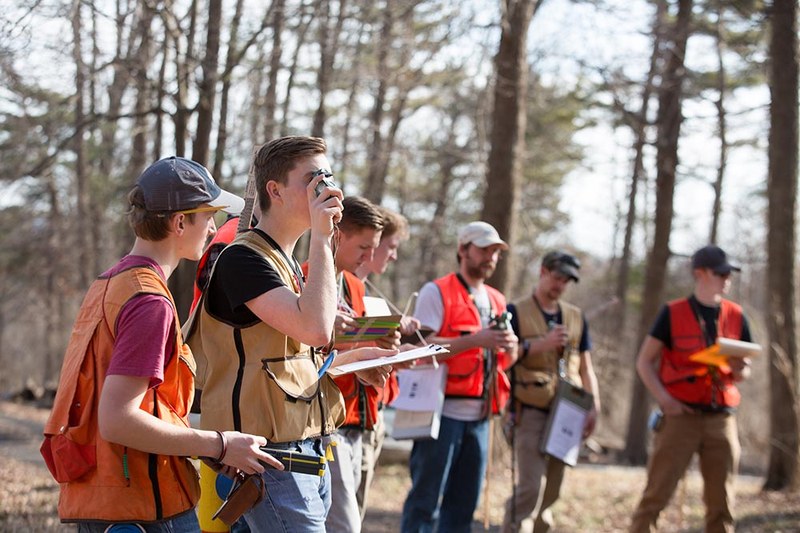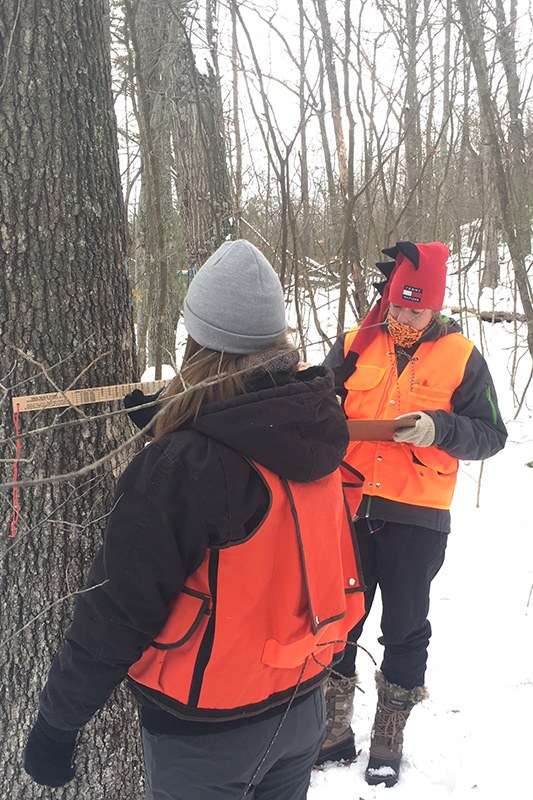Forest Ecosystems Minor
Out of the classroom and into the woods.
The Forest Ecosystems minor introduces you to the functions and value of forested ecosystems. The minor helps you identify different trees and shrubs and understand forest ecology, while giving you the opportunity to dive deeper into related topics.
Career paths: work outside managing and conserving forests.
A minor in Forest Ecosystems complements other academic programs that help prepare you for a rewarding career related to natural resources in the public or private sectors, and lays a solid groundwork for advanced academic studies.
The Forest Ecosystems minor is a great option if you:
- are invested in the health of the planet, its forests, and humanity’s future
- enjoy spending time outside and want to an advanced scientific understanding of forest ecosystems.
- believe it’s important to maintain forests and teach others about its value
Courses
For details on program requirements, suggested academic plan, and more, see the University Bulletin.
Required courses
- Field Dendrology
- Forest Ecology
Sample additional courses
- Agroforestry: Science, Design, and Practice
- Conservation Biology
- Conservation Genetics
- Silvics and Forest Dynamics
- Forest Conservation: Principles and Practices
- Forest Ecosystem Monitoring and Data Analysis
- Forest Fire Management
- Forest Management and Planning
- Forest Resources Measurements
- Global Change and Ecosystems
- GPS and GIS Applications for Natural Resources Professionals
- Herbaceous Forest Plant Identification and Ecology
- Human Dimensions of Natural Resources
- Invasive Forest Plants: Identification, Ecology, and Management
- Policy and Administration
- Principles of Forest Soils Management
- Remote Sensing and Spatial Data Handling
- Restoration Ecology
- Silviculture
- Tree Physiology
- Urban Forest Management
- Watershed Management
- Wildlife Habitat Management
Get started.
Students may apply for admission to the Forest Ecosystems minor through LionPATH. For additional information, contact the program coordinator, Ellen A. Rom.





